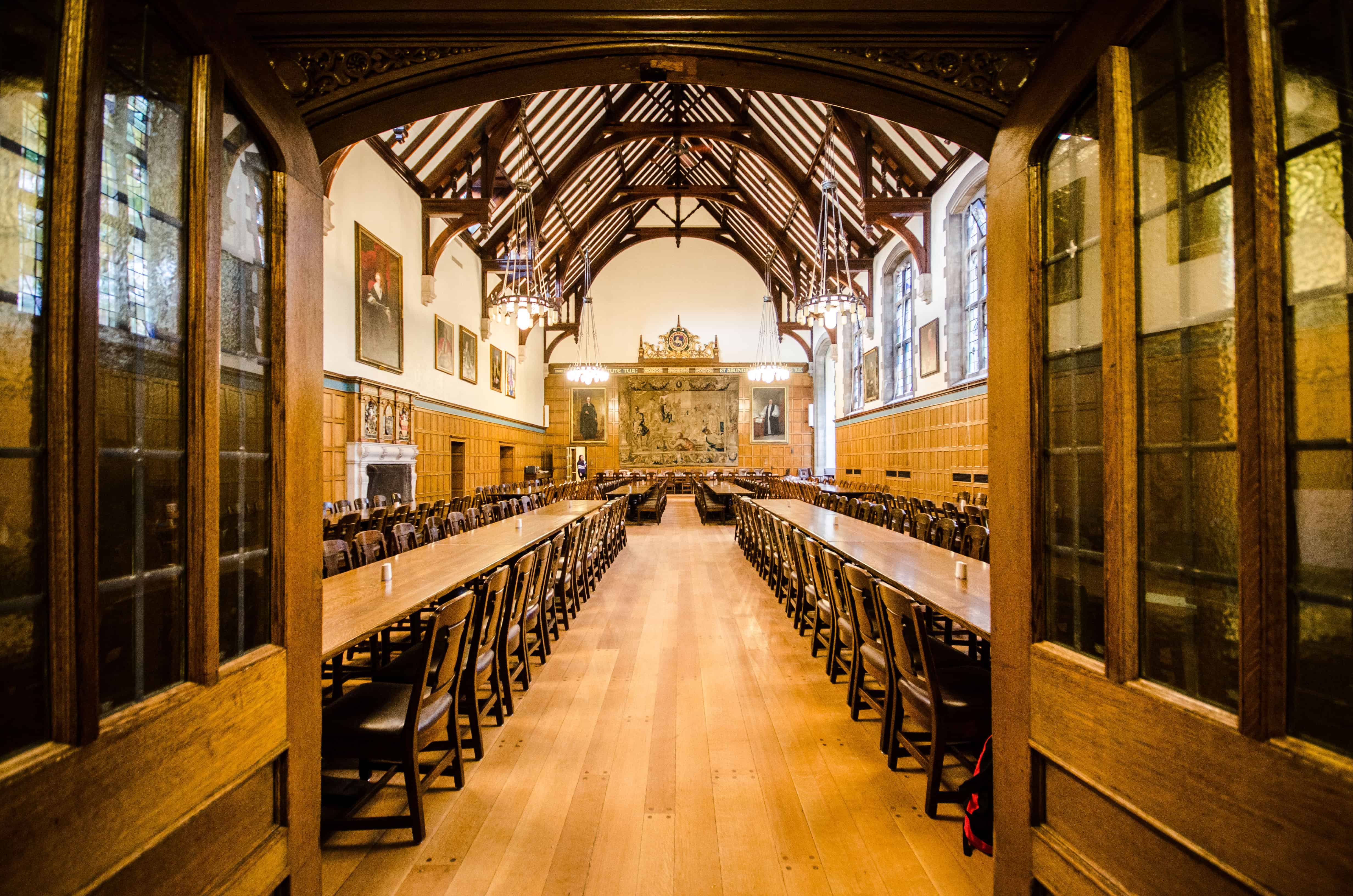An announcement by the Trinity College administration that formal late dinners on Mondays and Thursdays are to be cancelled has prompted an outcry from the college’s students and alumni, fueling debate about how best to address the difficulties confronting one of the Trinity’s most distinctive traditions.
Hosted Mondays through Thursdays, after the earlier and more casual 5.00 pm dinner concluded, late dinners required formal dress and gowns, and had staff serving meals to students, rather than employing the self-service typical of most dining halls on campus.
On Wednesdays, the dinners feature college faculty and alumni seated at the high table. Although these mid-week formal meals will continue, other late dinners that have been axed were beloved by some students as a way to foster a sense of community and provide an occasion for collective discourse.
“While these dinner had flourished in the past, recent years have shown them to be frequented largely by the same small group of regulars,” said Jonathan Steels, Trinity College dean of students. “Many attempts by student leaders have been made to increase attendance at the dinners, but the nature of their formal dress often serves as a disincentive for the college student looking for a quick meal between classes.”
Strategies to increase attendance included table francaise (for French speakers), wine receptions, hors d’oeuvres, and greater flexibility in dress code. The diverse efforts have largely failed to galvanize the student population.
Limited attendance, Steels argues, “taken in the context of Trinity College’s five million dollar-renovation to the dining hall” would exclude students with late classes from attending.
While some students were apathetic about the change, others, including those more interested in the college’s traditions, have sent letters requesting the dinners be reinstated. Some members of the college’s Faculty of Divinity have protested the change by wearing their gowns to normal dinners.
When pressed, the dean acknowledged that the administration was open to change should enough people want it. Steels stands by the decision though, and says it “was in the best interest of both the college and its students.”
Fourth-year student and treasurer of Trinity College’s student government Christopher Hogendoorn says he understands the difficulties of maintaining the tradition, but stressed that the dinners should be reformed rather than removed.
“As a regular attendee, I’m not ignorant of the obvious attendance problems,” wrote Hogendoorn in a letter addressed to the administration. “But with the enthusiasm of the first year class, and the new kitchen amenities in Strachan Hall, I had very high hopes that late dinners would become, as they have been in the past, well attended, and a social fixture of college life.”
Hogendoorn and others have also been critical of the process leading up to the cancellation as well. Hogendoorn says the decision was “largely unilateral” and didn’t adequately involve notifying or consulting the student body. He is also concerned by the fact that the decision was made before the current incoming class had a chance to truly experience the dinners and make up their minds.
“Students at the college, had they known that late dinner was on the chopping block, would have been very supportive of its continuity,” said Trinity College Dramatic Society president and frosh week co-chair Bryn Orth-Lashley.
Pointing to Trinity’s system of student self-governance, Orth-Lashley says that the college prides itself on its commitment to student involvement and autonomy, and believes that the decisions should come from the students themselves.
“People don’t have to go to late dinners to support it,” said Orth-Lashley. “It is faulty logic to assume that those who don’t attend late dinners support its demise. Many people enjoy the mere fact that the tradition exists and that the student body is somehow a part of it.”
Former head of non-residents at Trinity College Jonathan Scott disagrees and says, “for at least the past five years, the college’s senate has discussed changes to meal plans and service options at its community affairs committee. These changes have been on students’ radar all that time.”
But some, like student head of Trinity college Sam Greene, believe these arguments are largely unnecessary and that blaming the decision-making process simply “obfuscates the issue.”
“I think all of us would have preferred better communication and more clarity on this. Ultimately, though, very little is being changed. Instead of being upset about phasing out the parts of a tradition that have faced rapidly declining participation, let’s focus on improving the remaining dinners that are a valued hallmark of the Trinity experience,” said Greene.


